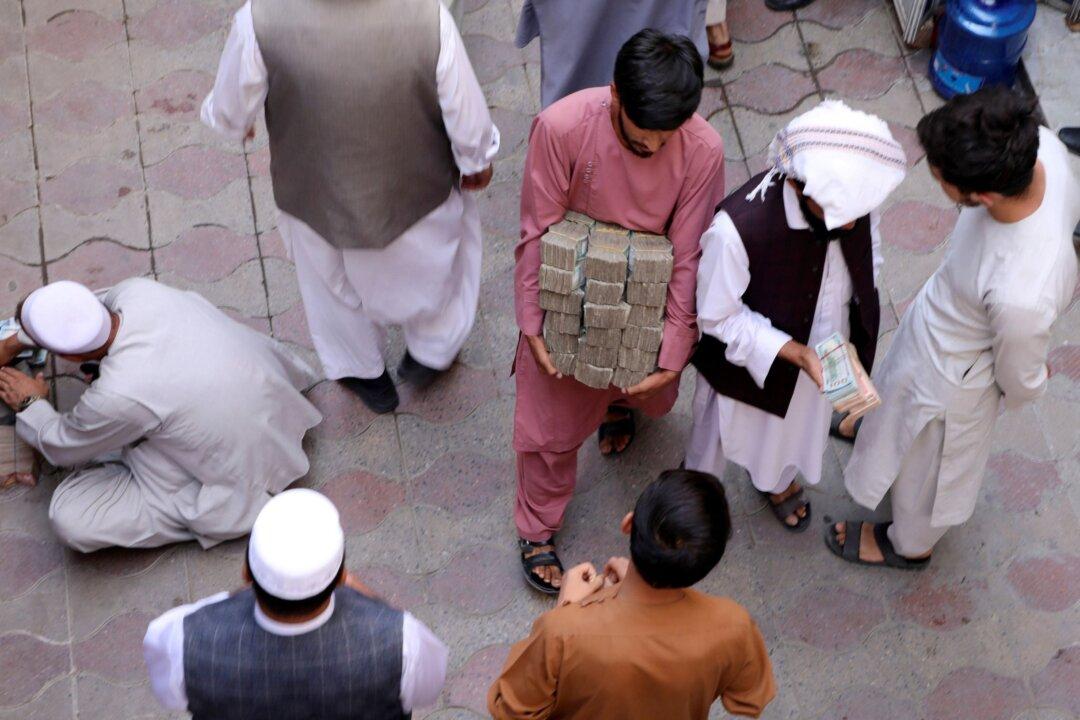The Afghan central bank was drained of the majority of its U.S. dollar cash reserves in the weeks before the Taliban takeover of Kabul, according to an assessment prepared for the country’s international donors.
Afghanistan’s severe cash shortage began before the Taliban terrorist group seized control of Kabul, according to a confidential, two-page brief, obtained by Reuters. The document was written earlier this month by senior international economic officials for institutions including the World Bank and International Monetary Fund (IMF).





